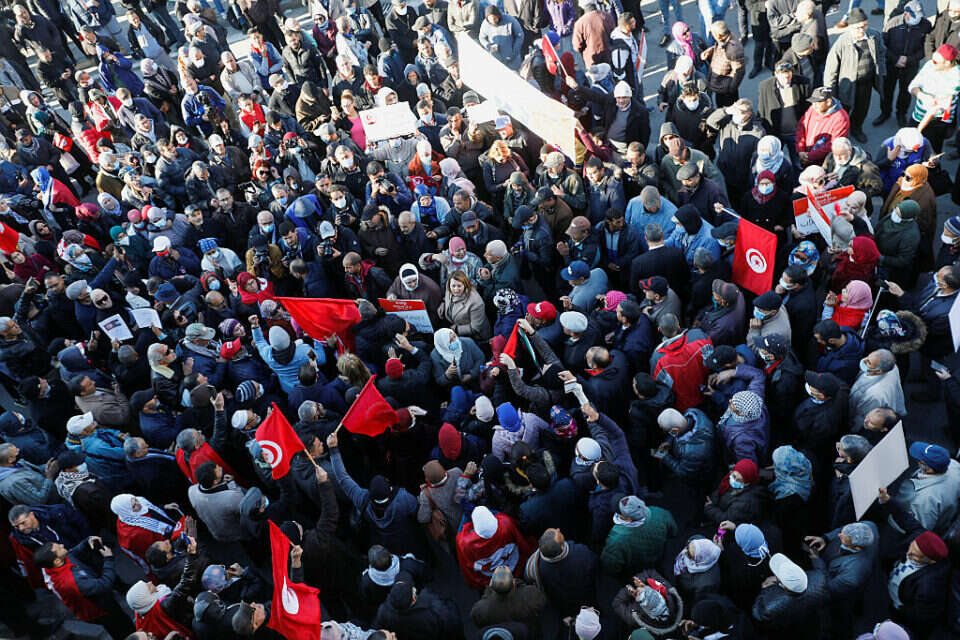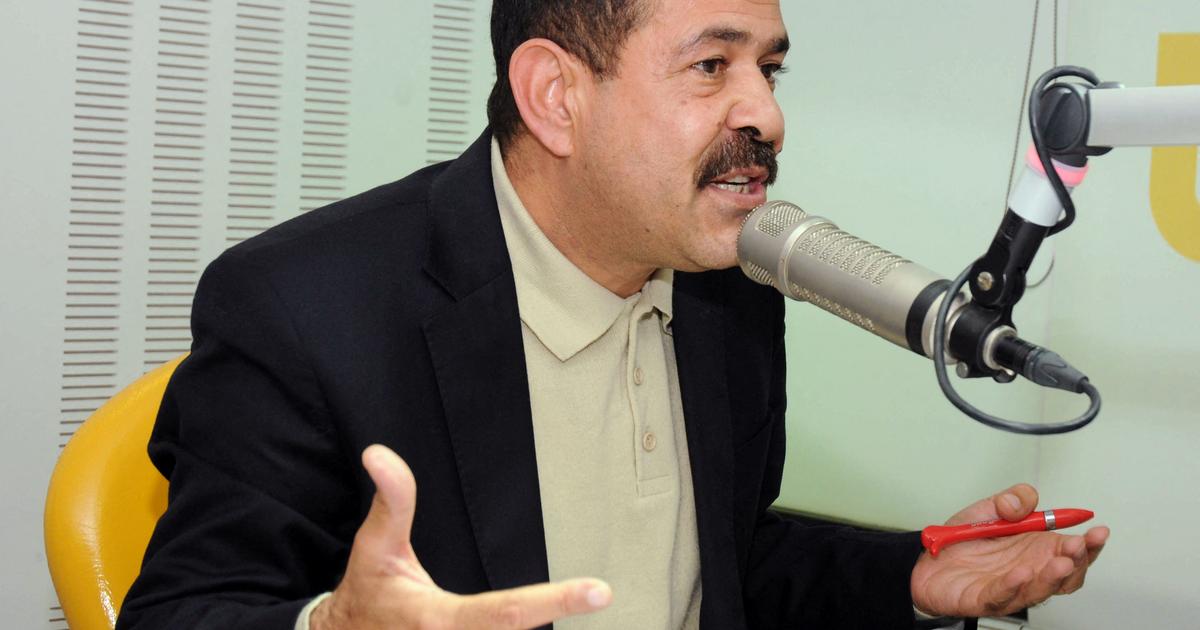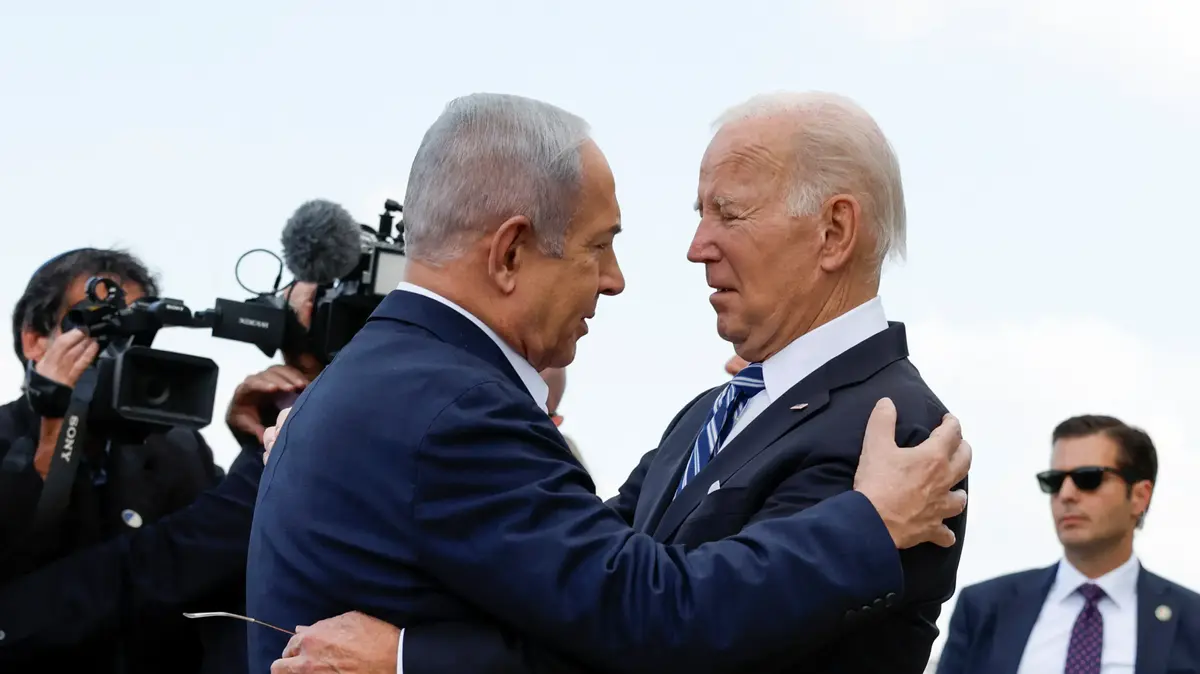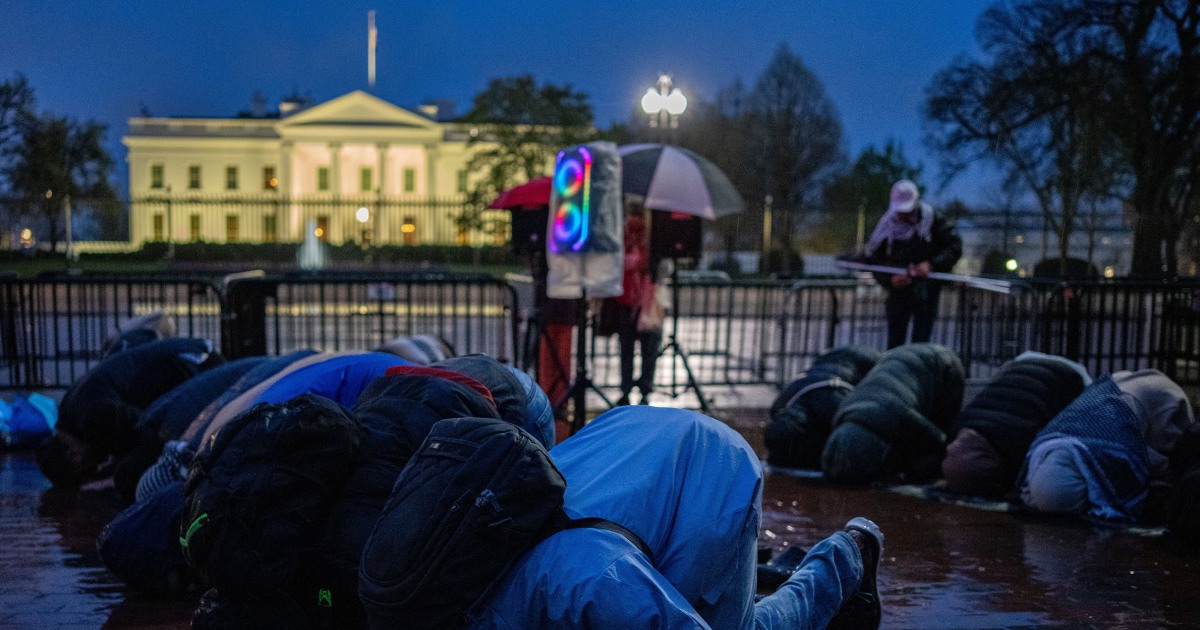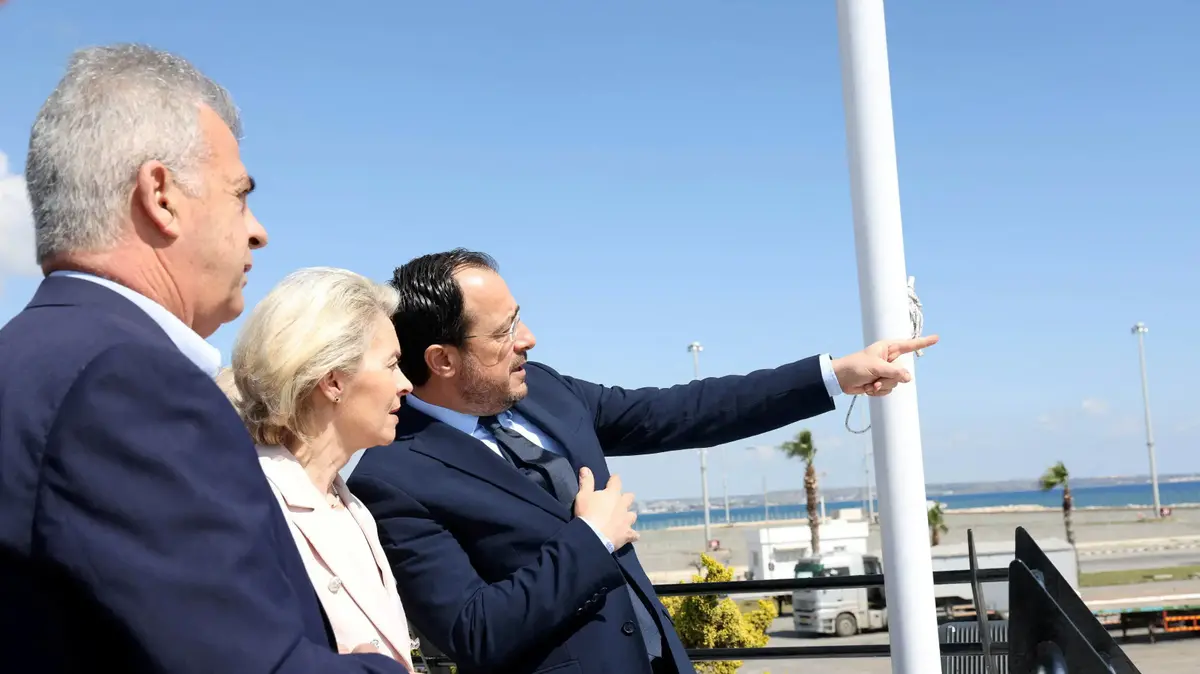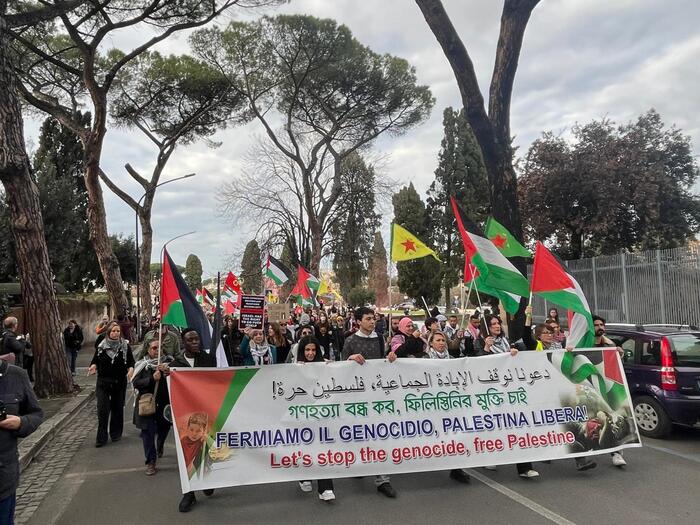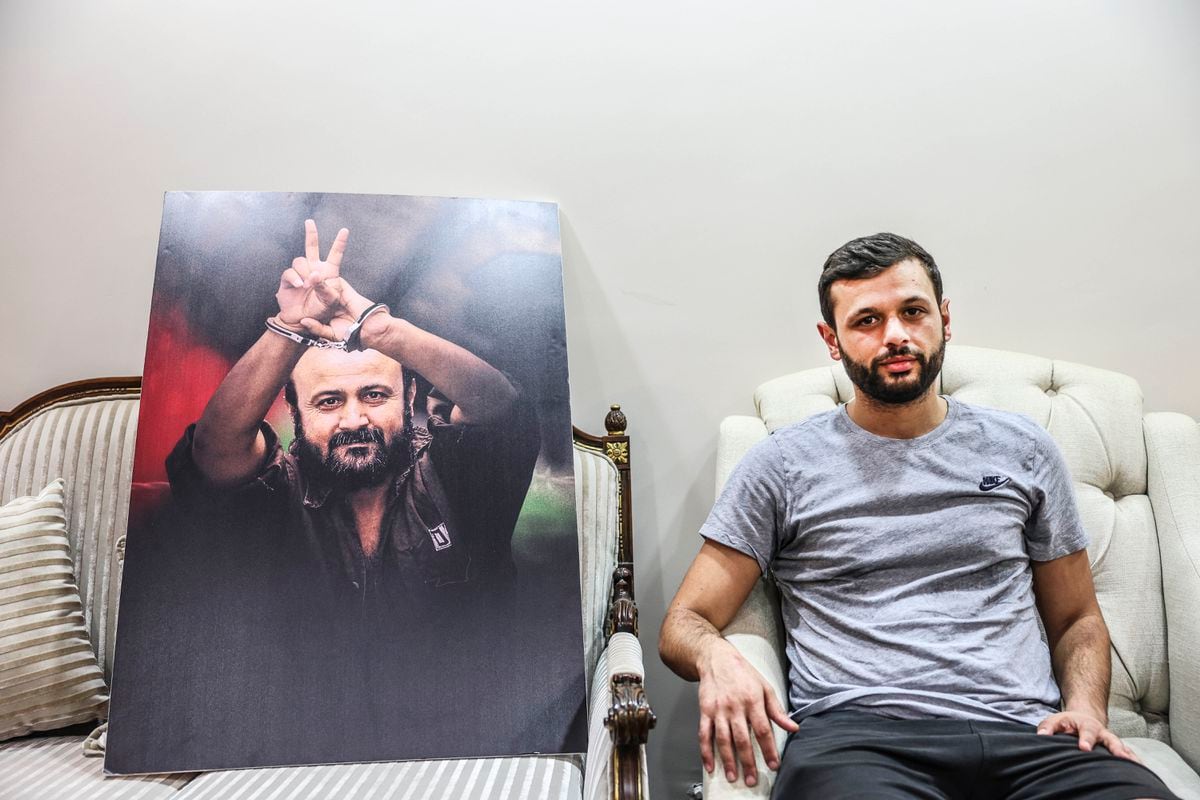Tunisian President Case Said is struggling to broadcast business as usual.
Just last week, the independent leader, who came to power about two years ago, gave Algerian President 'Abd al-Magid a necklace of a national badge of honor, on the occasion of his visit to the country.
Earlier this month, Palestinian Authority Chairman Mahmoud Abbas paid a visit to Tunisia, and the two inaugurated the new Palestinian embassy building in Tunis.
Tunis has for years served as a refuge for the PLO, and boasts of its sponsorship of the Palestinians. It is no coincidence that the hall where Said and Abbas sat was called Hammam a-Sht. PLO headquarters in Tunis.
Said and Abu Mazen against the background of a relief of "Greater Palestine", Photo: AFP
Despite these efforts, Said is at the heart of a political storm.
Ahead of the anniversary of the overthrow of Zin al-'Abadin bin Ali's regime in the Jasmine Revolution, the president announced a further freeze on parliamentary activities until December 17, 2022. "The Arab Spring".
Ironically, Said explained that his decisions to extend the stay of parliament and hold elections only in a year, were meant to allow the people to express their desire to put forward proposals for legal and constitutional reforms.
As expected, a number of parties in the country have already rejected the president's decisions and condemned them.
At the same time, a group of politicians united in the framework of the "National Rescue Assembly", designed to formulate a plan to save the economy and society, and to protect democracy and the rule of law.
A-Nahda's political adviser, Riyadh a-Shaibi, said they were "rejecting all the coup measures and calling for the suspension of the constitution and parliamentary action."
Friday marks the 11th anniversary of the protest that began the "Arab Spring," Photo: AFP
Another member of parliament, Hisham al-Ajabuni of the Democratic Party, wrote a satirical summary of Said's speech on his Facebook page: "I am the president, I am the government, I am the parliament, I am the judiciary - and anyone who criticizes or opposes me For roles, or a liar or a traitor or a thief or a pit or a spy. "
In such an atmosphere, it is highly doubtful that the election, scheduled by the President for December 17, 2022, will take place and not be postponed on any pretext.
So is the July referendum on constitutional changes.
Not for nothing, over the weekend demonstrations broke out in the capital against Said's decisions.
Still, Friday marked 11 years since the protest that led to the overthrow of the previous dictator and began the events of the "Arab Spring."
Recent events in Tunisia join the failures to establish full democracy in other countries in the Middle East.
The Muslim Brotherhood's experiment in Egypt was cut short by an army coup in 2013.
The same can be said of the Sovereign Council in Sudan, which will henceforth be under constant threat of coup by the generals.
Tunisia, as elsewhere, is disappointed with the democratic regime, which failed to solve the problems of corruption and the economy in a short time.
Another concern concerns the nature of the regime, which may fall into one of the movements affiliated with the Muslim Brotherhood, and their aspirations to subordinate all spheres of life to Islam.
The President and the New Prime Minister, Photo: IPI
In fact, the a-Nahda party strives to present a moderate face to the world and a vision similar to conservative Christian parties in Germany or Italy.
Following this, the party even collaborated with other political elements in parliament and the coalition.
However, the economic situation undermined its political power.
If in 2011 "A-Nahda" won 89 seats in the House of Representatives out of 217, then in 2019 it has already dropped to only 52 seats.
This was of course joined by the corona crisis.
President Said, it seems, took advantage of the political fitness hour to turn back the "Arab Spring" wheel.
What remains is a semblance of democracy.
An example of such an appearance could be seen in Said's move to appoint a woman as prime minister.
Despite being the first woman in office, Dr. Najla Bowden Ramadan was appointed to him when she had no party affiliation.
Were we wrong?
Fixed!
If you found an error in the article, we'll be happy for you to share it with us

